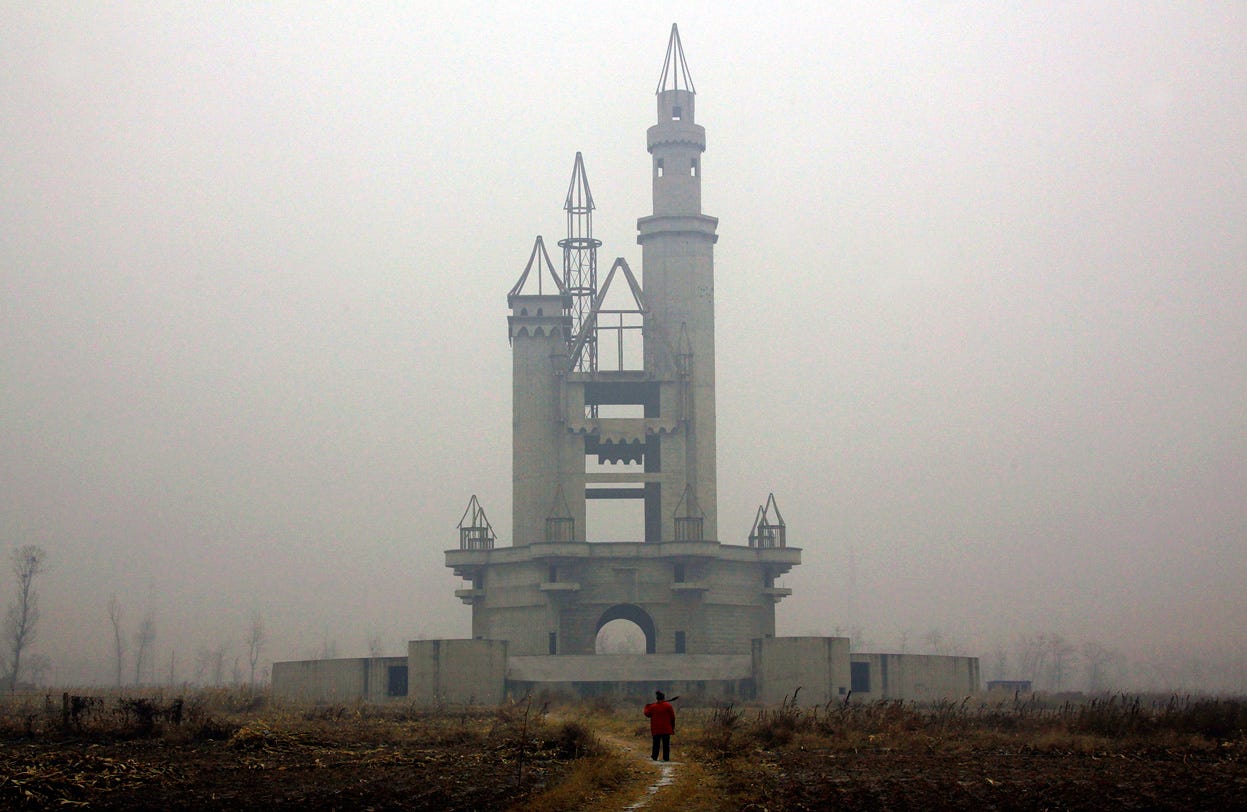multi-storied #11: Club culture, subculture
In the Guardian Long Read last week, I wrote about a skirmish at Wentworth Golf Club in Surrey, between the club’s longtime members and its new owner, a Chinese billionaire named Yan Bin. As ever, as with most long pieces, the story really had to do with more than just the finer details of the membership structure:
The ongoing clash between Yan Bin and his club’s members has witnessed several dramatic phases: threats, lawsuits, duplicity, negotiations, truces, even death. But the tale isn’t just about the preposterousness of the wealthy. Rather, it’s impossible to learn about all this turmoil – in a place called “the Island”, for crying out loud – and not see it as an allegory. With its groves of pine and rhododendrons, its houses named Heatherbrook or Bluebell Wood or Silver Birches, and the gentle hillocks of its club’s fairways, Wentworth Estate holds dear a vision of pastoral Englishness. But since the 1980s, Wentworth has been reshaped – just like England itself – by money: first the wealth of the homegrown 1%, which considered itself immune to the turmoil of change, but which then found itself subject to the whims of the globalised capital held by the 0.001% like Yan Bin. The saga is familiar: a small locality unsettled by the arrival of an outsider. Except that the outsider is a transnational holding corporation, and the locality is Wentworth Estate, a slice of England overtaken by the world.
(It also has to do with—and I promise this is true—why there are three different companies selling versions of Red Bull in China.)
Clubs are terrific fun to write about; I found this out several years ago, when I wrote about another storm elsewhere, at the Breach Candy Club in Mumbai. They are all weird, self-enclosed worlds, and the most elite ones feel artificial because they were, in fact, designed to be artificial—designed to keep out the real world:
There are clubs like the Breach Candy Club all over the Indian subcontinent: relics of the Raj, institutions that were set up as bolt-holes for the British, where they could retreat to row or swim or play cricket or race horses. The activity, really, was secondary; foremost, these clubs were English corners of foreign fields, intended to keep the tumult of India at bay. Within their grounds, at least temporarily, the rituals of life could be enacted as they might have been in London or Shropshire or Edinburgh. To press home that illusion, Indians were originally not allowed as members and only rarely as guests; as liveried waiters or turbaned doormen, of course, they were welcome. The clubs carried their air of unmatched privilege even into the early twentieth century, when the rules of membership began to ease. ‘You do not know what prestige it gives to an Indian to be a member of the European Club,’ Dr Veraswami says in George Orwell’s Burmese Days. ‘In the Club, practically he iss a European. No calumny can touch him. A Club member iss sacrosanct.’ Even Indians, it appeared, wished to be insulated from India.
But nothing can ever keep out the real world, of course, and therein lies the contradiction of club life and the joy of writing about it. The real world impinging upon the artificial is like matter meeting anti-matter. It’s bound to prove combustible.
The same is true of sub-cultures at large, and my favourite type of assignment bar none is the kind in which I sneak into a sub-culture for a few months, inhabit it, learn its ways, and then write about it. The sub-culture is interesting when it’s treated both solemnly and knowingly. You must take its rules, its priorities and its behaviours seriously, to make sense of it—and yet you must be knowing in drawing connections between this microcosm and the outside world. If you describe the forces of the outside world within this compact space, then they somehow become easier to see for what they are.
One of the masters of the sub-culture piece is Burkhard Bilger, whom I think I’ve mentioned here before. He’s written pieces about extreme cavers, feathers in fashion design, bull riding, guitar builders, and the egg station in a Las Vegas brunch spot. Here’s one splendid paragraph from his piece about young boys riding bulls. He’s just talked about how, in the playground in his Brooklyn neighbourhood, the parents got the rocks taken out of a small, artificial stream because they could get slippery. Out in Oklahoma, at bull-riding camp, though, things were different. Here’s parenting and its variance by culture and background, enlarged and made so thrillingly vivid within this microcosm:
The parents at the camp flipped this attitude on its head. They valued courage over caution, grit over sensitivity. They revelled in the raw physicality of boys. The mothers sat in the bleachers taking videos and hollering advice—“Wyatt, just ride the way Daddy taught you!” The fathers straddled the chute, leaning over their sons to cinch the rope and shove the calf into position: “Are you ready?” “Yes, sir!” “You’ve got to take the fight to him.” “Yes, sir!” “You’ve got to want it.” When the gate blew open, they leaped up on the rail and watched their sons with clenched fists and narrowed eyes. They weren’t stage parents, for the most part. They just took following your bliss to its logical extreme. “I’d let my kid do whatever he has a passion for,” one mother told me, “even if he wanted to be a piano player.”
One outtake from the Wentworth Golf Club saga that I wasn’t able to write about has to do with this place:
Yan Bin, it seems, started building a Disneyland knockoff a couple of dozen miles outside Beijing. It was to be called Wonderland. Then, in the late 1990s, there were problems over land acquisition, so he simply gave it up. For years, the amusement park languished in this way—forlorn and empty, even spooky, certainly in no way an embodiment of amusement. In 2008, developers tried to start the project up again but failed, and five years later, the place was razed to make way for (what else!) “a luxury product supermarket.”
I wasn’t able to find out if the supermarket ever came up. But the images of this amusement park saddened me in the way that images of other vacant human establishments have saddened me over the past year. In my occasional forays out, I will pass a restaurant that has been shuttered for months because of lockdown; perhaps it has already gone out of business, and is only waiting for the country to reopen so that its own closure can definitively come to pass. We are all, in a way, in limbo, the future staved off temporarily, waiting to see what lives and institutions will be destroyed after the emphatic return of “normalcy.”





